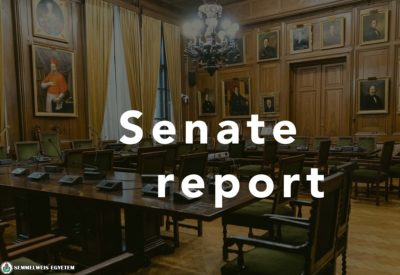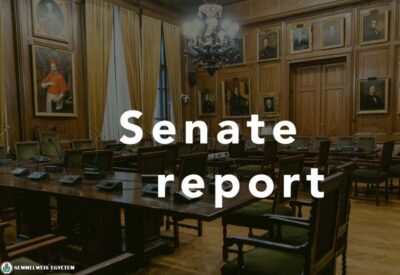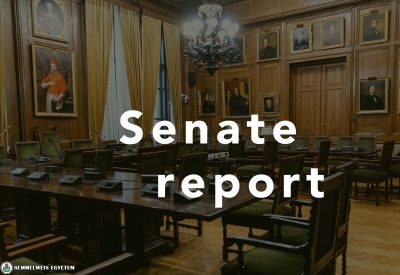It was supported by the Senate to create the possibility for the university to award the “Dr. med.” title in German language, which is widely applicable abroad. It is based on an amendment to the Act on National Higher Education (Nftv.) of January 2022. Semmelweis University is developing the conditions for obtaining this title within the framework of the Doctoral School, which will enable the students concerned to be awarded with this title, which has an academic value in the Hungarian system between a thesis and a PhD degree, in a professional framework and procedure adapted to that in Germany. To obtain the title, a complex examination before a committee approved by the Doctoral School is required, after which the dissertation can be submitted.
The board supported a proposal for the establishment of an MSc in Neuro-rehabilitation and the launch of relevant processes. The four-semester course is planned to start in autumn 2024 at the András Pető Faculty in Hungarian and English, and will cover rehabilitation areas related to neurological pathologies. The aim is to provide non-medical team members who wish to work in this field, or who are already working in this field, with the necessary training to meet the challenges.
The Senators approved an amendment of the Statutes of the Students’ Union; the changes to the document, ratified by the Delegates’ Assembly on 28 February, were justified by the need to adapt it to everyday practical operations.
They also approved the report on the work of the standing committees, established by the Senate in the faculties (Study and Examination Committee, Credit Transfer Committee, Ethics and Disciplinary Committee, and, for the Faculty of András Pető, two additional committees: the Practical Training Committee and the Publishing and Library Committee), which must be drawn up at least once a year, as required by the rules.
Several amendments have been made to the section of the Organizational and Operational Rules (SZMSZ) concerning the employment requirements system, which contains simplification provisions related to the change of model. The main substantive changes include the possibility to waive the public application process for senior management posts in justified cases, with the permission of the Rector, the Chancellor, or the President of the Clinical Centre. For teaching and scientific research posts, it is now possible to hold a senior post until the age of seventy instead of the previous sixty-five. There is also a simplification in procedural roles concerning applications of university and college professorships, and for the title of a visiting professor. In areas supporting the core activities of the university, a new job title system called ‘Semmelweis grade’ was introduced, also in the context of the model change, with uniform and transparent rules and principles defining the different job levels. The basic concepts and main principles of the individual performance appraisal system and the performance incentive target bonus system were incorporated.
The board also reviewed one management application and three applications for teaching posts.
Pálma Dobozi
Translation: Viktória Kiss


